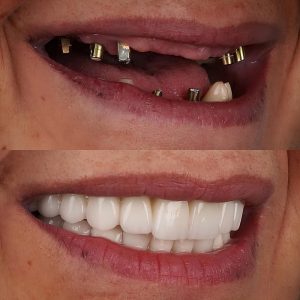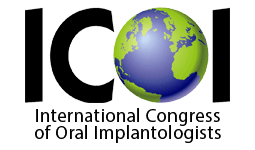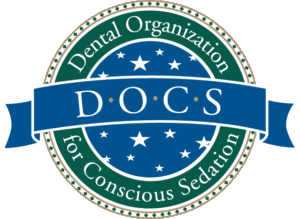Comparing Dental Implants, Dentures, and Bridges: Your Complete Guide

Residents of Woodbine, Kirkwood, and Clayton discover why families trust our St. Louis dental practice for tooth replacement solutions. Call 314-762-6784 to schedule your consultation.
Tooth Replacement Care at St. Louis County Dental
For decades, dentures have been the go-to solution for missing teeth because they’re quick and affordable. However, modern dentistry has evolved significantly, offering superior alternatives that provide better function, comfort, and longevity. At St. Louis County Dental, we specialize in all tooth replacement options and help patients choose the best solution for their unique needs.
We’re proud to serve the diverse communities of St. Louis County with consistently exceptional implant care. As the voted 2024 and 2025 Best Dental Office in Saint Louis, we’ve earned the trust of families from Woodbine to Clayton and everywhere in between. Whether you’re seeking a single tooth replacement or a complete smile transformation, our team provides the same high-quality treatment to every patient, regardless of which community you call home.
Comparing Dental Implants, Dentures, and Bridges: Your Complete Guide
Missing teeth affect more than just your smile—they impact your ability to eat, speak, and maintain proper oral health. Choosing the right tooth replacement option is one of the most important dental decisions you’ll make. With several restoration methods available, understanding the differences between dental implants, dentures, and bridges will help you make an informed choice that fits your lifestyle and long-term goals.
Dental Implants
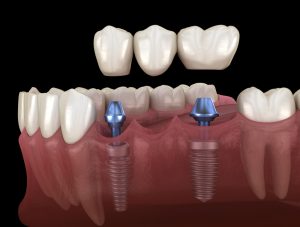
Types of Dental Implants:
- Single Tooth Implants: Replace one missing tooth without affecting adjacent teeth
- Implant-Supported Bridges: Restore multiple consecutive missing teeth
- Full Arch Implant Solutions: Replace all upper or lower teeth with All-on-4 or All-on-6 systems
- Implant-Supported Dentures: Secure removable or fixed dentures with implant attachments
- Mini Dental Implants: Replace missing teeth, requiring lower jawbone density than regular-sized implants.
Traditional Dentures
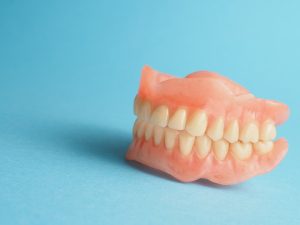
Types of Dentures:
- Complete Dentures: Replace all teeth in the upper or lower arch
- Partial Dentures: Fill gaps when some natural teeth remain, using metal clasps to attach to existing teeth
- Immediate Dentures: Placed immediately after tooth extraction while tissues heal
- Implant-Retained Dentures: Snap onto dental implants for improved stability
Dental Bridges
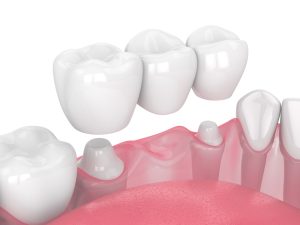
Types of Bridges:
- Traditional Bridges: Require reshaping adjacent teeth to support crowns
- Cantilever Bridges: Anchored on one side only, used when teeth exist on just one side of the gap
- Maryland Bridges: Use metal or porcelain frameworks bonded to the back of adjacent teeth
- Implant-Supported Bridges: Anchored to implants rather than natural teeth
Comprehensive Comparison of Tooth Replacement Options
Stability and Security
Dentures: Unless supported by implants, traditional dentures are not permanently fixed in your mouth. They rest on your gums and can be removed at any time—in fact, they must be removed nightly for cleaning. While dental adhesives can help secure them, dentures still have a reputation for slipping out of place during eating or speaking, which can cause embarrassing moments and even damage remaining teeth if they shift.
Dental Bridges: Traditional bridges are cemented permanently in place, providing good stability for chewing and speaking. However, they rely on adjacent teeth for support, which means those teeth must be ground down to accommodate crowns. If an anchor tooth develops problems, the entire bridge may fail.
Dental Implants: Because implants are permanently fused to your jawbone through osseointegration, they should never move out of place. Your jawbone holds each implant fixture securely in position, providing stability that matches or exceeds natural teeth. This allows for a more powerful bite force and the confidence to eat any food without worry.
Longevity and Durability

Dental Bridges: Traditional bridges typically last 10-15 years with proper care. However, their lifespan depends heavily on the health of the supporting teeth. If decay or gum disease affects an anchor tooth, the entire bridge may need replacement. Additionally, the teeth supporting the bridge have an increased risk of complications.
Dental Implants: Unlike other options, dental implants are designed to last a lifetime. Once osseointegration is complete, the titanium post becomes a permanent part of your jaw. While the crown attached to the implant may eventually need replacement (typically after 15-20 years), the implant itself rarely requires replacement. With proper dental implant care—regular brushing, flossing, and dental checkups—implants should serve you for decades, making them the most cost-effective long-term solution.
Comfort and Natural Feel
Dentures: Although custom-molded to fit your mouth initially, dentures become increasingly uncomfortable over time. As your jawbone shrinks due to a lack of stimulation, dentures loosen and cause sore spots, difficulty chewing, and constant adjustments. Many denture wearers complain about the bulky feel, gagging sensations, and the sensation of having a foreign object in their mouth.
Dental Bridges: Fixed bridges feel more natural than dentures since they’re permanently cemented in place. However, some patients experience sensitivity in the anchor teeth, especially if those teeth were healthy before being prepared for crowns. The pontics (false teeth) don’t provide stimulation to the jawbone beneath them, which can lead to bone loss over time.
Dental Implants: Because dental implants are shaped to fit the space in your jaw perfectly and fused directly to bone, they work and feel just like natural teeth. There’s no slipping, no bulky base covering your palate, and no foreign object sensation. This allows for an unprecedented level of comfort that other restoration methods simply cannot match.
Bone Preservation and Oral Health
Dentures: Traditional dentures rest on your gums and provide no stimulation to the underlying jawbone. Without this stimulation, your body reabsorbs the bone, causing your jaw to shrink over time. This leads to the characteristic “sunken face” appearance many long-term denture wearers develop, making you look older than your years. Partial dentures can also damage the adjacent teeth they clip onto, putting those teeth at risk.

Dental Implants: This is where implants truly excel. Because they function like natural tooth roots, implants stimulate the jawbone and prevent bone loss. This preserves your facial structure, maintains your youthful appearance, and keeps your remaining teeth properly aligned. Implants also don’t require altering adjacent healthy teeth, protecting your natural tooth structure.
Eating and Speaking
Dentures: Denture wearers often struggle with certain foods. Hard, crunchy, or sticky items like steak, apples, corn on the cob, and caramels become difficult or impossible to eat. Dentures provide only about 25% of the chewing power of natural teeth. They can also slip while speaking, causing clicking sounds, slurred speech, or embarrassing moments.
Dental Bridges: Fixed bridges restore most chewing function and don’t interfere with speech. However, they’re not as strong as implants and may limit your ability to bite into very hard foods. Some patients experience food getting trapped under bridges, requiring extra care during cleaning.
Dental Implants: Implants restore full chewing power—up to 95% of natural teeth. You can eat anything without restriction, including steak, raw vegetables, and crunchy foods that denture wearers must avoid. Speaking is completely natural with no risk of slipping or clicking sounds. This dramatically improves quality of life and eliminates dietary limitations.
Maintenance and Care

Dental Bridges: Bridges require meticulous hygiene. While you can brush them like natural teeth, you must use special floss threaders or water flossers to clean under the bridge, where food can get trapped. This extra effort is necessary to prevent decay in the anchor teeth and maintain gum health.
Dental Implants: Maintaining implants is as simple as caring for natural teeth. Regular brushing twice daily, flossing, and routine dental checkups are all that’s required. No special tools, adhesives, or cleaning solutions are needed. This simplicity makes implants the easiest tooth replacement option to maintain long-term.
Treatment Timeline and Procedure
Dentures: The timeline from consultation to receiving dentures is typically six to eight weeks. Multiple appointments are needed for impressions, try-ins, and adjustments. While this seems quick, remember that dentures will need replacement, meaning you’ll repeat this process multiple times throughout your life.
Dental Bridges: Traditional bridges usually require two to four weeks from start to finish. Two appointments are typical—one to prepare teeth and take impressions, and another to place the bridge. However, this involves permanently altering healthy adjacent teeth, which cannot be reversed.
Dental Implants: The dental implant process takes longer initially, averaging four to six months from consultation to final restoration. This includes time for surgical placement, osseointegration (bone fusion), and creating the custom crown. However, our patients consistently report that the superior results make the extra time worthwhile.
Cost Considerations
Dentures: Dentures have the lowest upfront cost, making them seem attractive initially. However, when you factor in replacements, adhesives, cleaning products, adjustments, and relines, the lifetime cost becomes substantial. Additionally, the ongoing bone loss can eventually make dentures impossible to wear, requiring implants anyway.
Dental Bridges: Bridges cost more than dentures but less than implants initially. However, they typically need replacement every 10-15 years. If anchor teeth develop problems, additional costs arise for treating those teeth or replacing the bridge entirely.
Dental Implants: Implants have the highest upfront cost but represent the best long-term value. With proper care, implants last a lifetime, eliminating replacement costs. When you calculate the cost over 20-30 years, implants are often the most economical choice.
Which Tooth Replacement Option Is Right for You?
 Choose Dental Implants If You:
Choose Dental Implants If You:
- Want a permanent tooth replacement option
- Desire the most natural look and feel
- Want to preserve jawbone and facial structure
- Need to eat all types of food without restriction
- Prefer simple maintenance like natural teeth
- Have adequate bone density (or are willing to undergo bone grafting)
- Want the best long-term value despite a higher upfront dental implant cost
Choose Traditional Dentures If You:
- Need the most affordable immediate solution
- Cannot undergo oral surgery due to health conditions
- Have significant bone loss that makes implants difficult
- Prefer a removable option
- Need to replace many or all teeth quickly
Choose Dental Bridges If You:
- Are replacing one to three consecutive teeth
- Want a fixed solution, but cannot have implants
- Have healthy adjacent teeth that can support a bridge
- Need a faster solution than implants
- Have sufficient bone in the bridge area
Frequently Asked Questions
Can I replace my dentures with dental implants?
Will insurance cover tooth replacement options?
How do I know which option is best for me?
What if I don't have enough bone for dental implants?
Our Restorative Dentists Near You Help Make Oral Health Decisions Easier
You deserve a tooth replacement solution that restores not just your smile, but your confidence, comfort, and quality of life. Whether you ultimately choose implants, bridges, or dentures, our experienced dental team in St. Louis will ensure you receive the highest quality care and the best possible results.
Patients in St. Louis, Woodbine, Kirkwood, and Clayton can schedule a consultation with Dr. Tim Grayem and our team by calling 314-762-6784. We’ll perform a comprehensive evaluation, discuss all your options, and create a personalized treatment plan that fits your goals and budget.
Don’t settle for an outdated solution when superior options are available. Contact St. Louis County Dental today and discover why thousands of patients have trusted us with their smiles!

